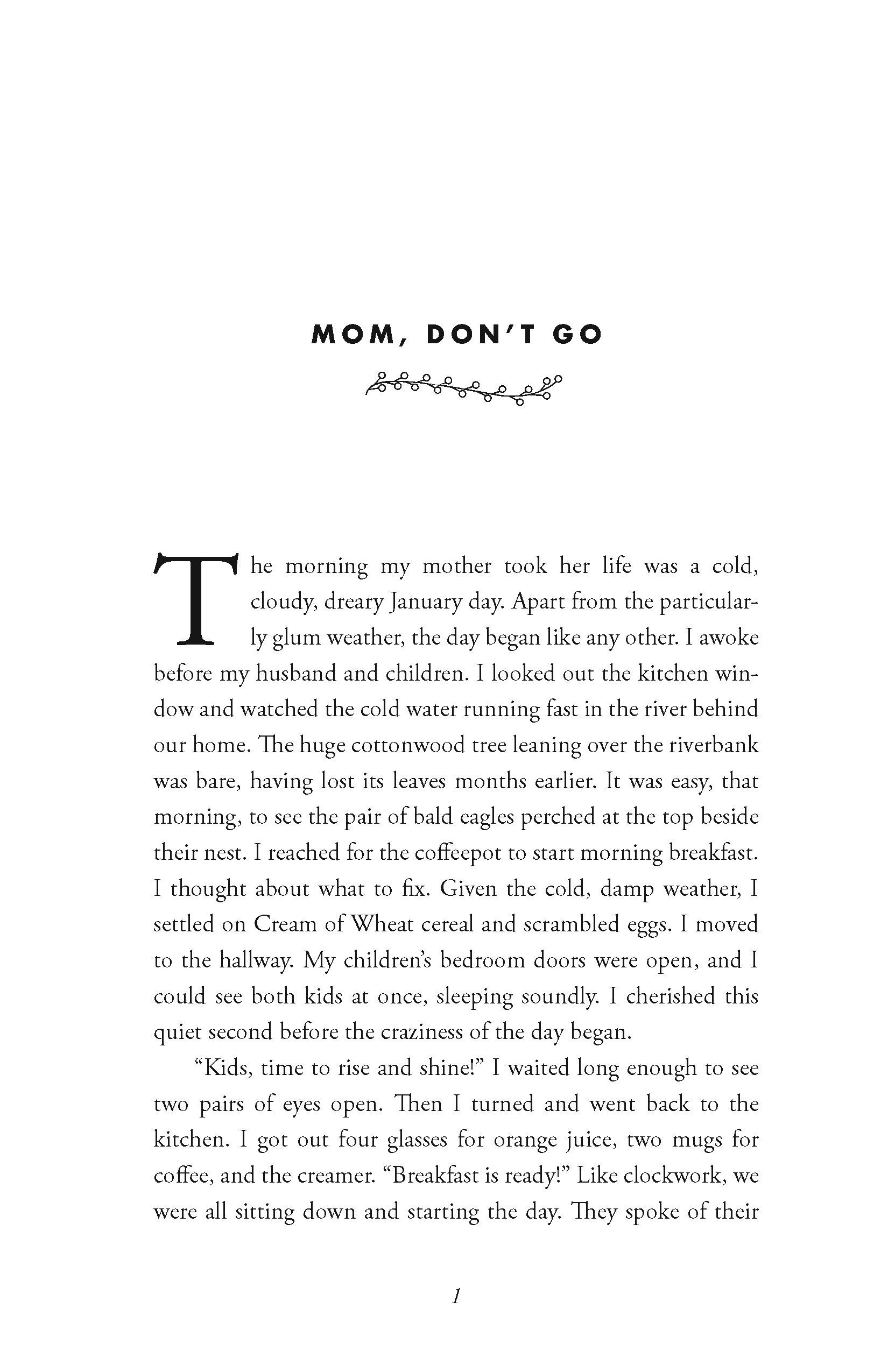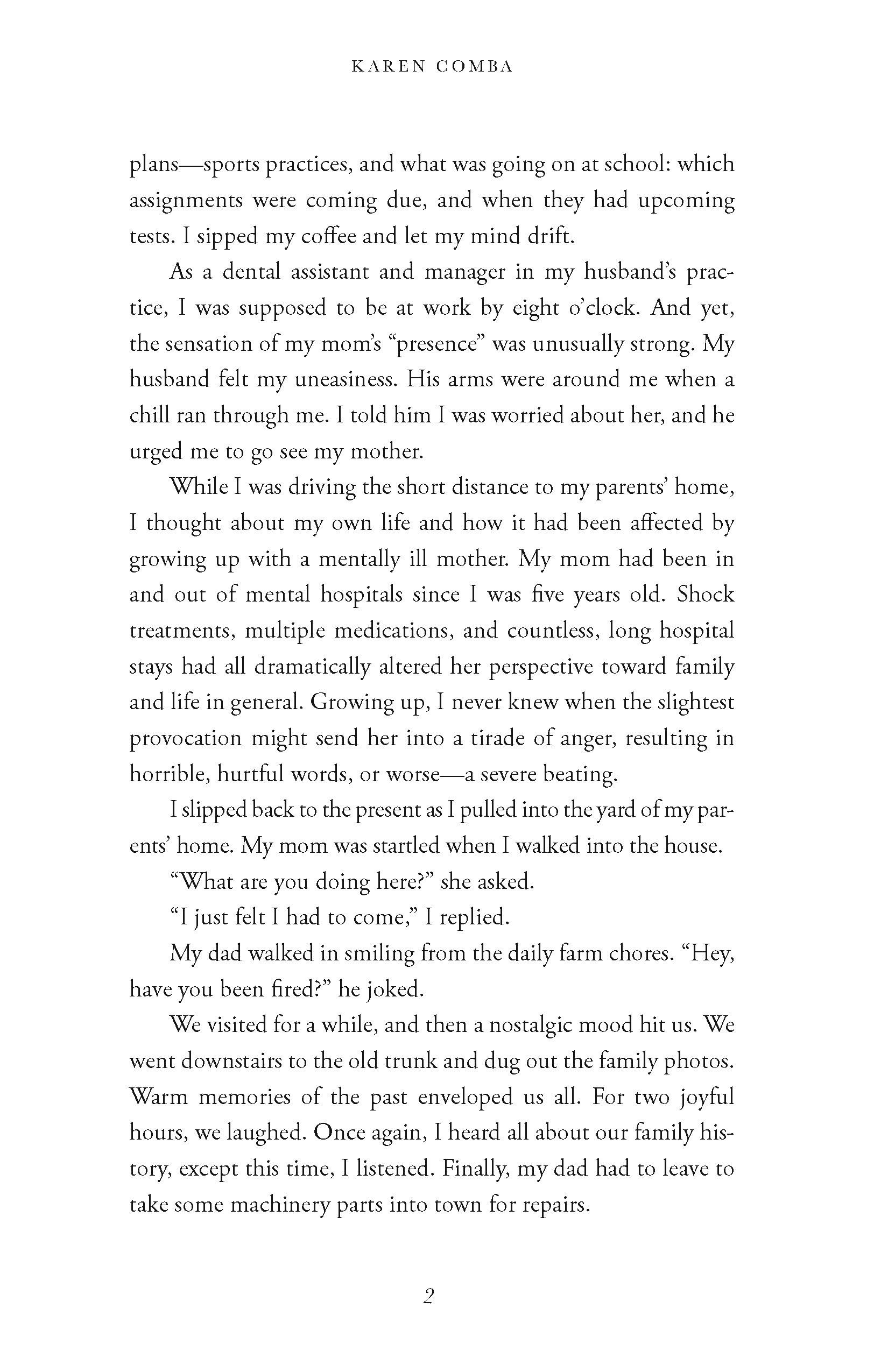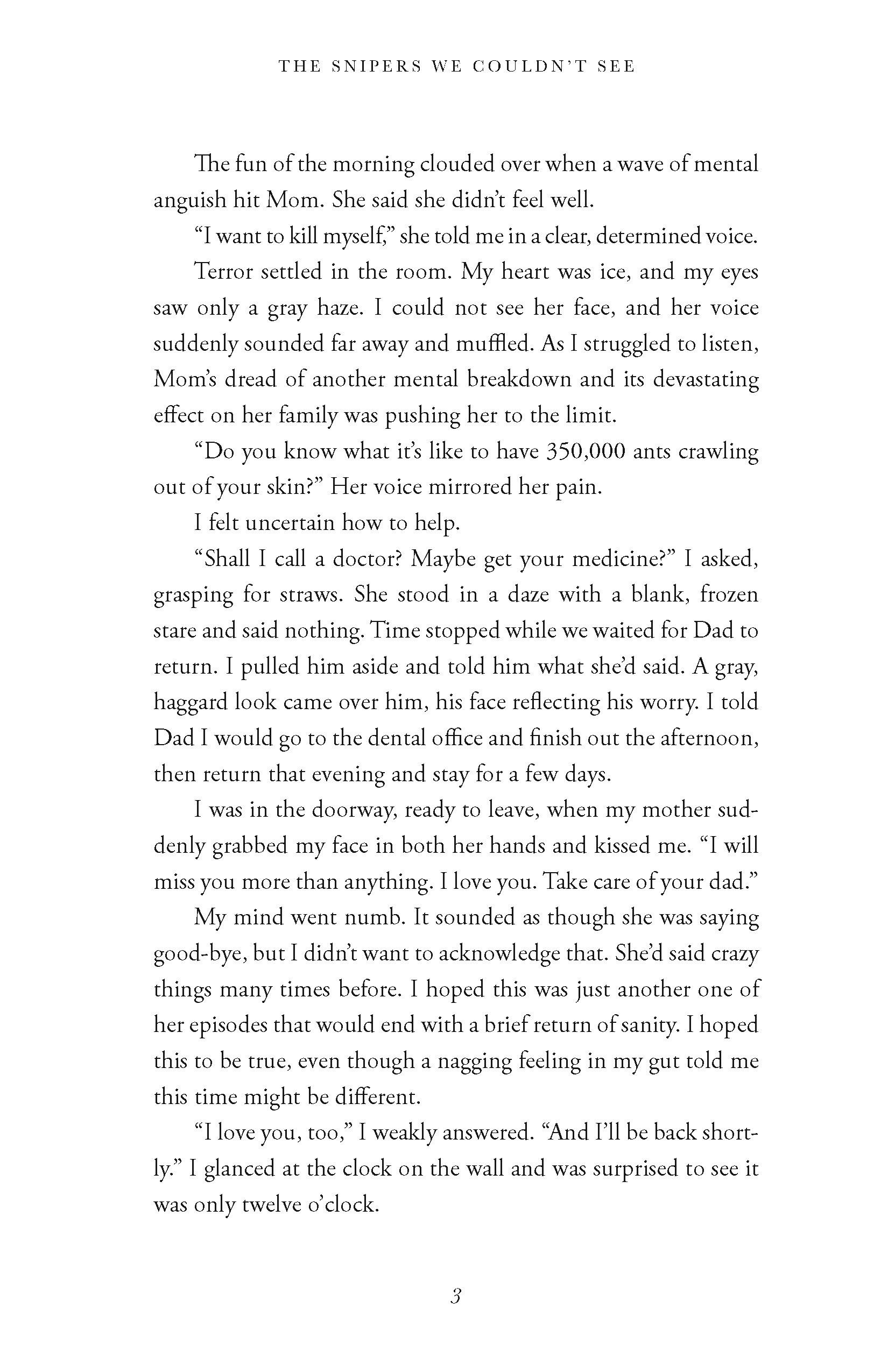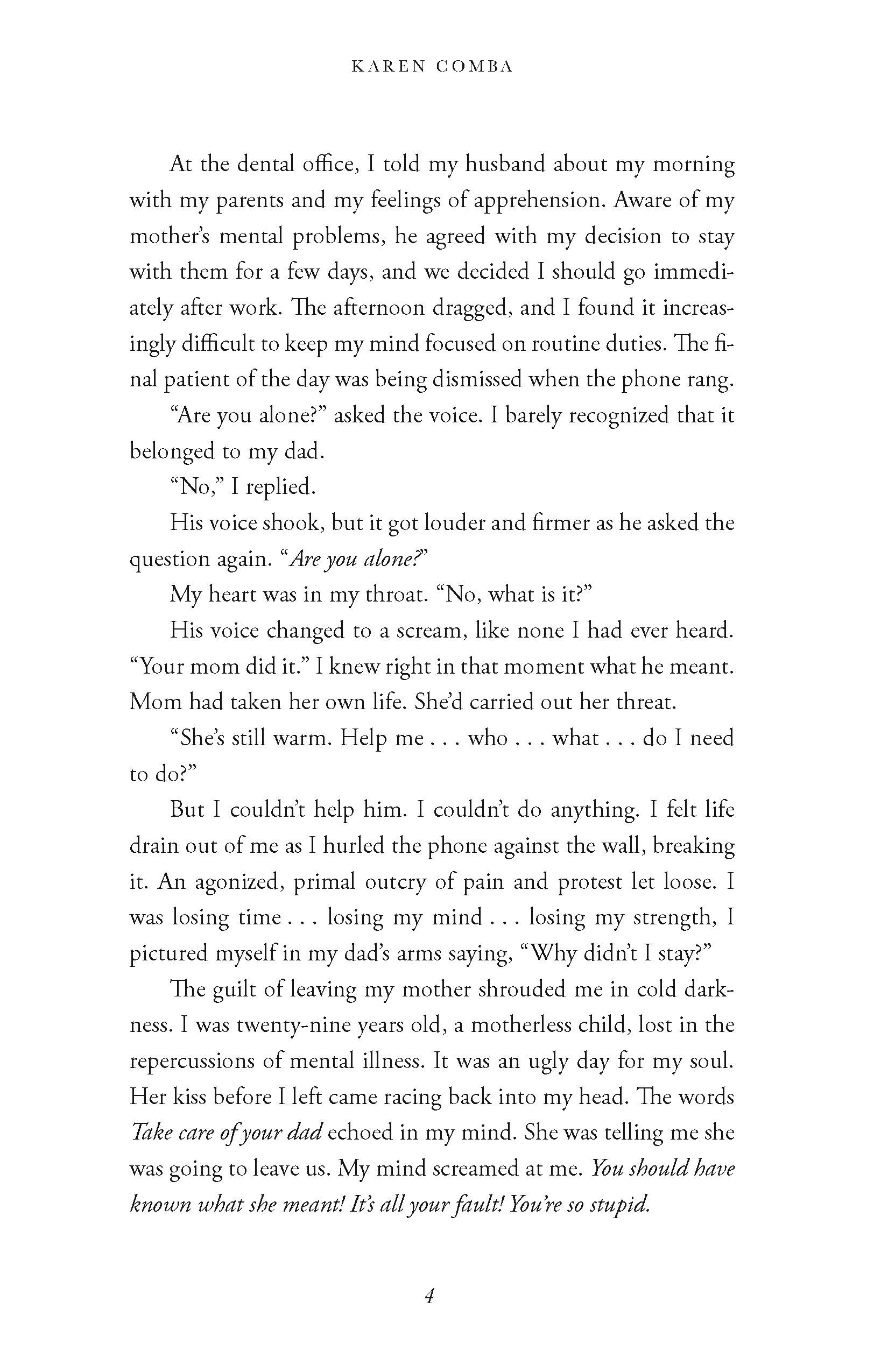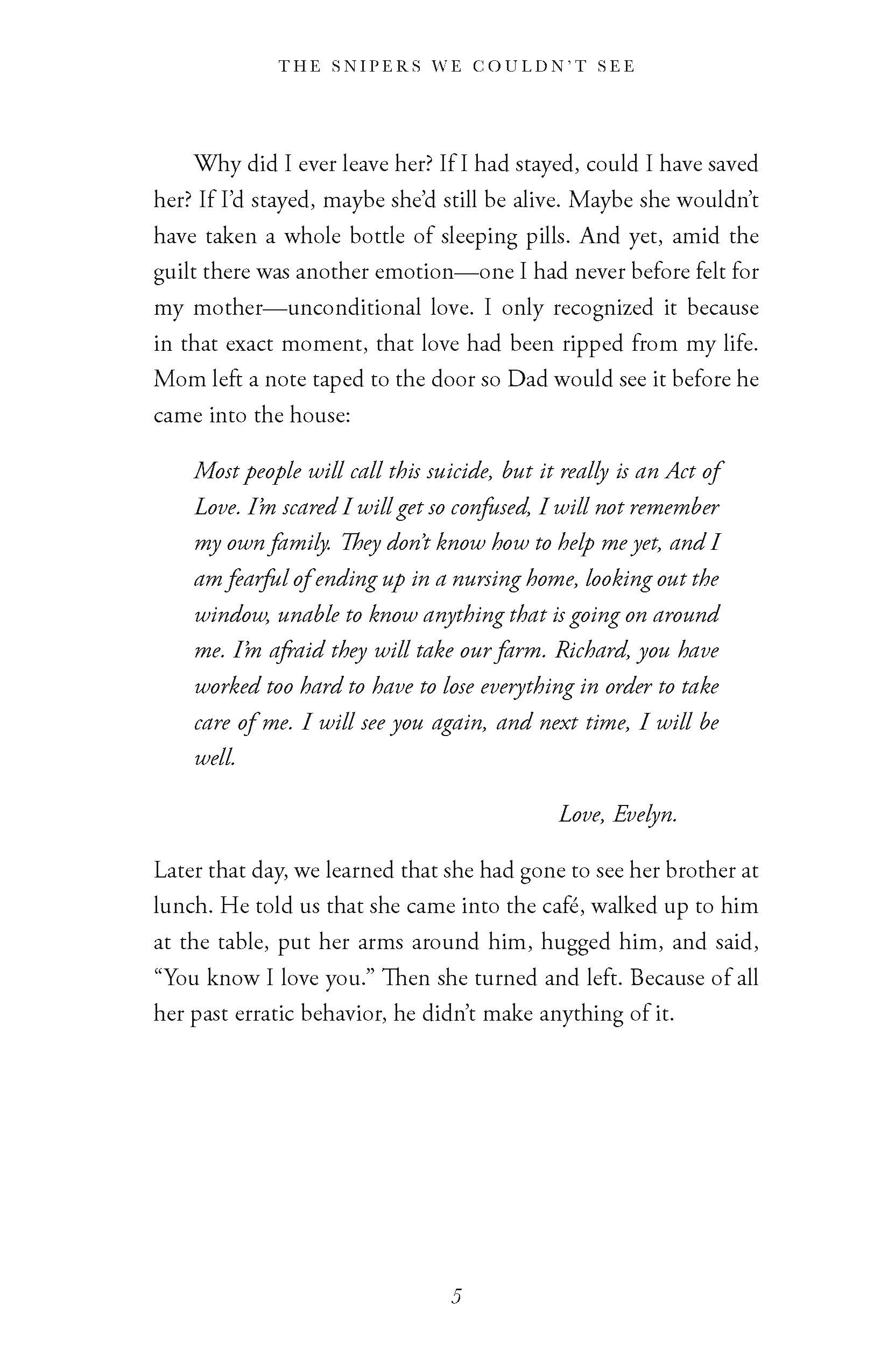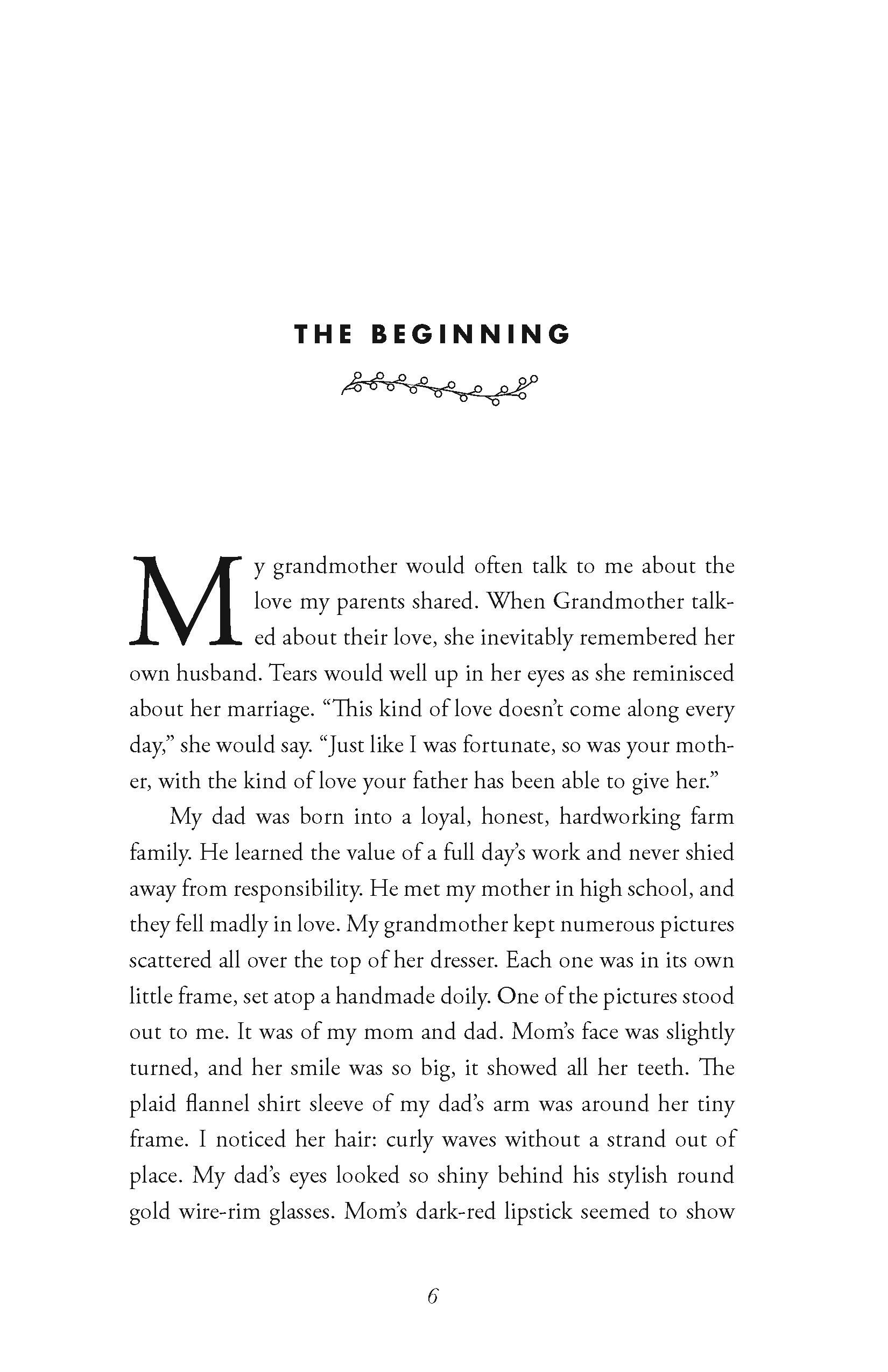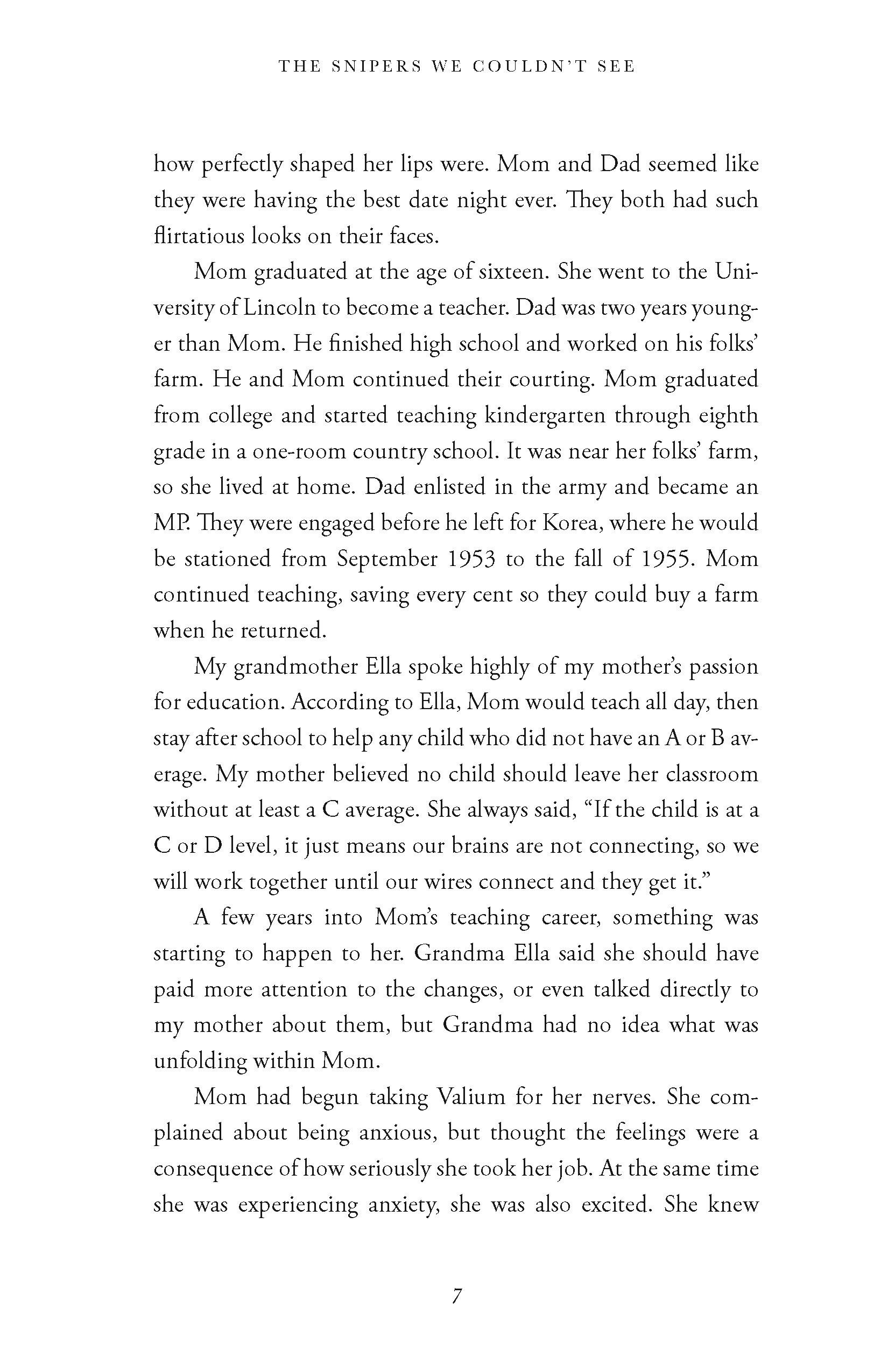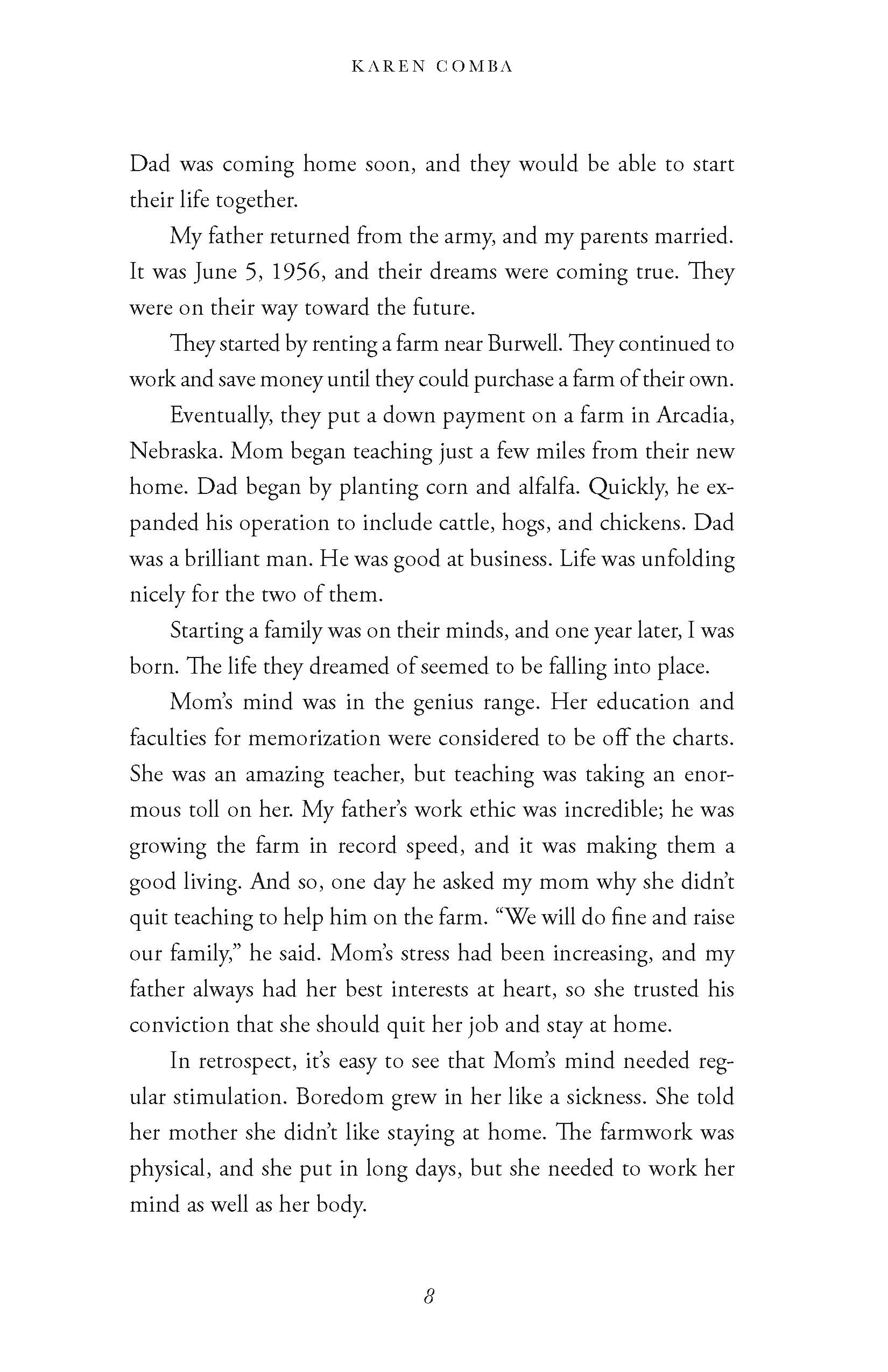Q & A

REVIEWS
Dogwoman
Revelational read….
This book grabbed me from the first page….and I finished it after two sittings. Karen is to be commended on so many levels: she pulls no punches describing her life growing up with a mom with severe schizophrenia and a dad who did everything possible to keep the family life going, all the while trying to protect her brother and attempting to make sense of herself in relation to an abusive, detached and often delusional mother. Karen’s brutal honesty is complemented by her ability to be introspective at every age. She is neither apologetic nor manipulative; she shares a deeply intimate story of survival, warmth, personal growth and acceptance, as well as humor, compassion and tenderness. I am honored to know and love Karen for the remarkable woman she is….
Raye Van Slyke
A MUST READ!
A powerful true story of the pain a child can go through living with a schizophrenic mother that can affect you as an adult. This heartbreaking story will capture you on the first page and will not let you put it down. A book of strength and inspiration. A definite must read!
Stacey
An incredible memoir of love and light from an incredible woman❤️
When I read the first sentence of this book I knew I was going to be moved in profound ways. Karen Comba tells her heart wrenching true story with incredible strength and love. Despite her very difficult childhood, this is a woman who emerged stronger, kinder, more loving, and committed to helping others. I am in awe of her and so inspired by her courage to tell the world her very personal journey as a way to bring others in similar situations hope and love.
kay osentowski
An Amazing Survival Journey Through the Eyes of a Brilliant Daughter of a Schizophrenic Mother.
This book gripped me from the first sentence. The author Karen Comba shares her heart wrenching and powerful survival story. Growing up with her Mother who had Schizophrenia is truly an eye opening venture into the darkness, and then her emergence into the light. Karen Comba's honesty and truth are to be honored.
Tracy Huerta
Captivating
Karen really took you back to her childhood and guided you thru the events that happened throughout the rest of her life so far. She put mental illness up front and showed you what it is from the perspective of a loved one. What it does from the outside looking in. She has you captivated from the first line to the last.
Kindle Customer
Fantastic book! Be kind to others, you never know what struggles people could be facing.
Best book I’ve read in a very long time! I couldn’t put this book down! Even if you don’t grow up with mental illness in your family, the message I got was to treat people with kindness because you don’t know the struggles people live with on a daily basis.
Nicole K.
Must Read!!!
The Snipers We Couldn’t See by Karen Comba is a must read! I was hooked within the first few pages and I couldn’t put it down! This story provides mental health awareness as well as gives hope for those who may be experiencing the trials involved within mental illness and everyday life.
Susan Marchant
This memoir will help those suffering in silence while being raised by a schizophrenic mother.
This important memoir will scorch your soul while you read it. The unspeakable abuse, both mental and physical, caused by a schizophrenic mother raising her daughter is heartbreaking. This story also demonstrates how the desire for attention and love can drive you to make poor choices. The author’s intent is to share her story to help others suffering a similar childhood as her own healing process continues. One can only hope that the author, too, can reap the rewards of the strength and resolve she had to find in order to write this memoir.






